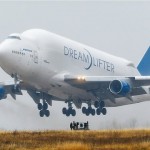Private jet security – is self-governance a sensible move?
With a hoax bomb scare onboard a UPS aircraft earlier this week, the cargo industry is under intense pressure to be more security-regulated. With many also extending the same questions to the private jet sector, should we as an industry now immediately take steps to self govern and enhance security procedures before further government regulation is enforced?
UK private jet flights have largely the same level of security as airlines. All flights in aircraft over 10 tonnes (10,000kg) have to be security screened (baggage and passengers). These procedures in the UK are known as NASP (National Aviation Security Programme).
However many private jet terminals (FBOs) and airports insist on a 100% security screening for ALL flights, regardless of how small the aircraft is. In the UK, London City Airport Jet Centre and RAF Northolt are two examples of where the airport authority have acted to enhance security above the National procedures.
In other European countries, such as Germany and Switzerland, such enhanced security procedures at private jet airports are common place. However many countries, including many others in Europe, do not seem to have coherent airport security regulations that govern private jets.
It may come as no surprise that Italy leads Europe in the most haphazard of airport security checks. It is widely commented by private jet crews that Italian airport security staff will regularly ignore alerts from security archways and allow passengers to walk through unchecked. As the UK witnessed with the Lockerbie Pan Am 747 bomb in 1988; there can be little protection within our own borders if other countries do not adhere to the same strict security checks.
It seems that Patrick Mercer the Tory MP and former shadow security minister needs to think outside of the UK box when he criticises cargo aircraft operators. But before this spotlight finds the private jet sector, it is time we close our own security loop holes.
Related content



